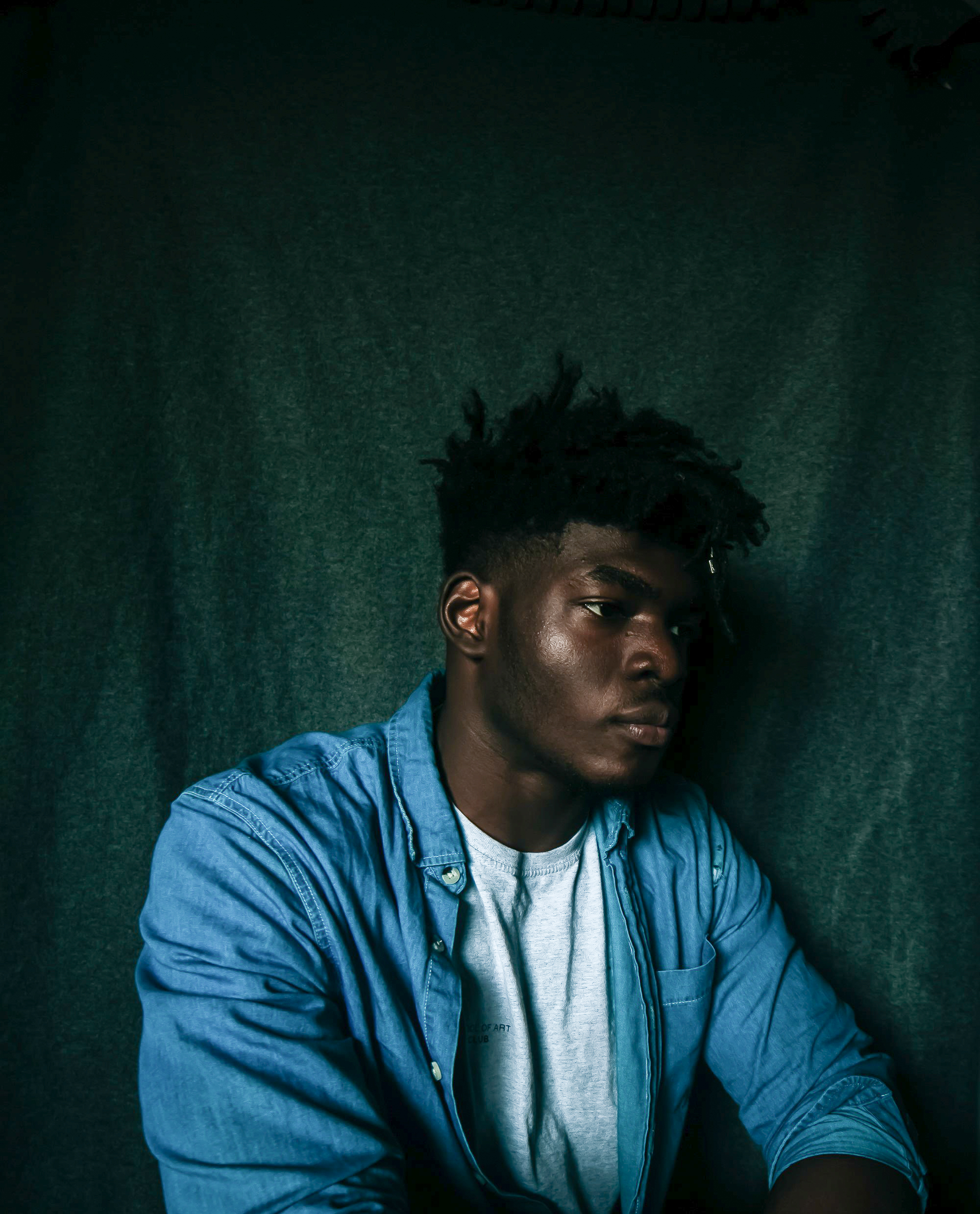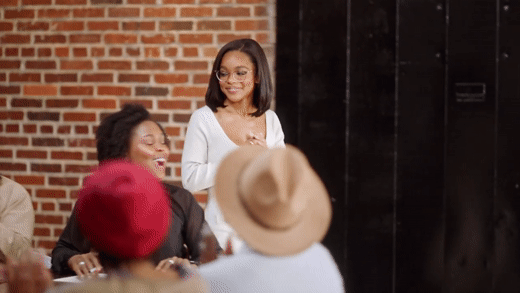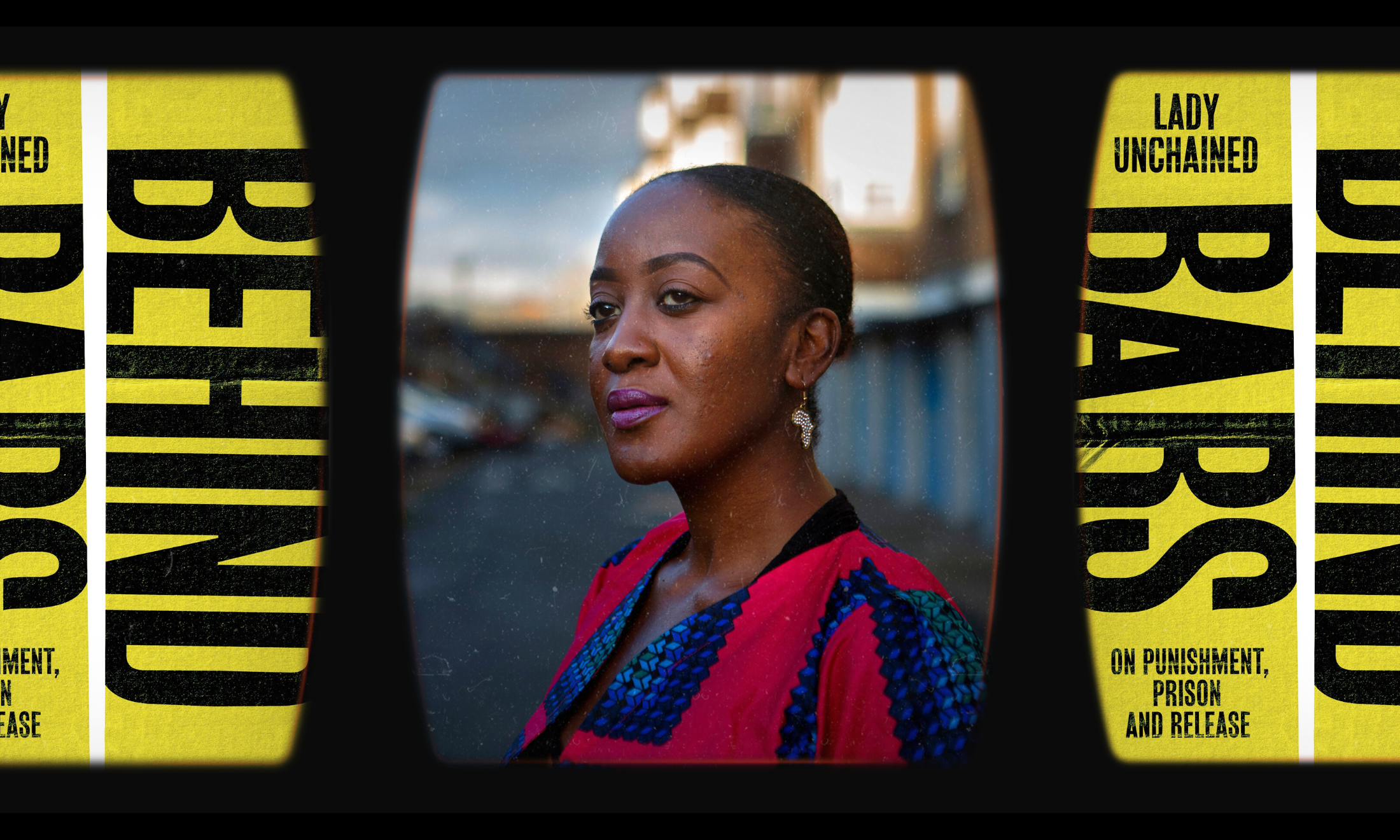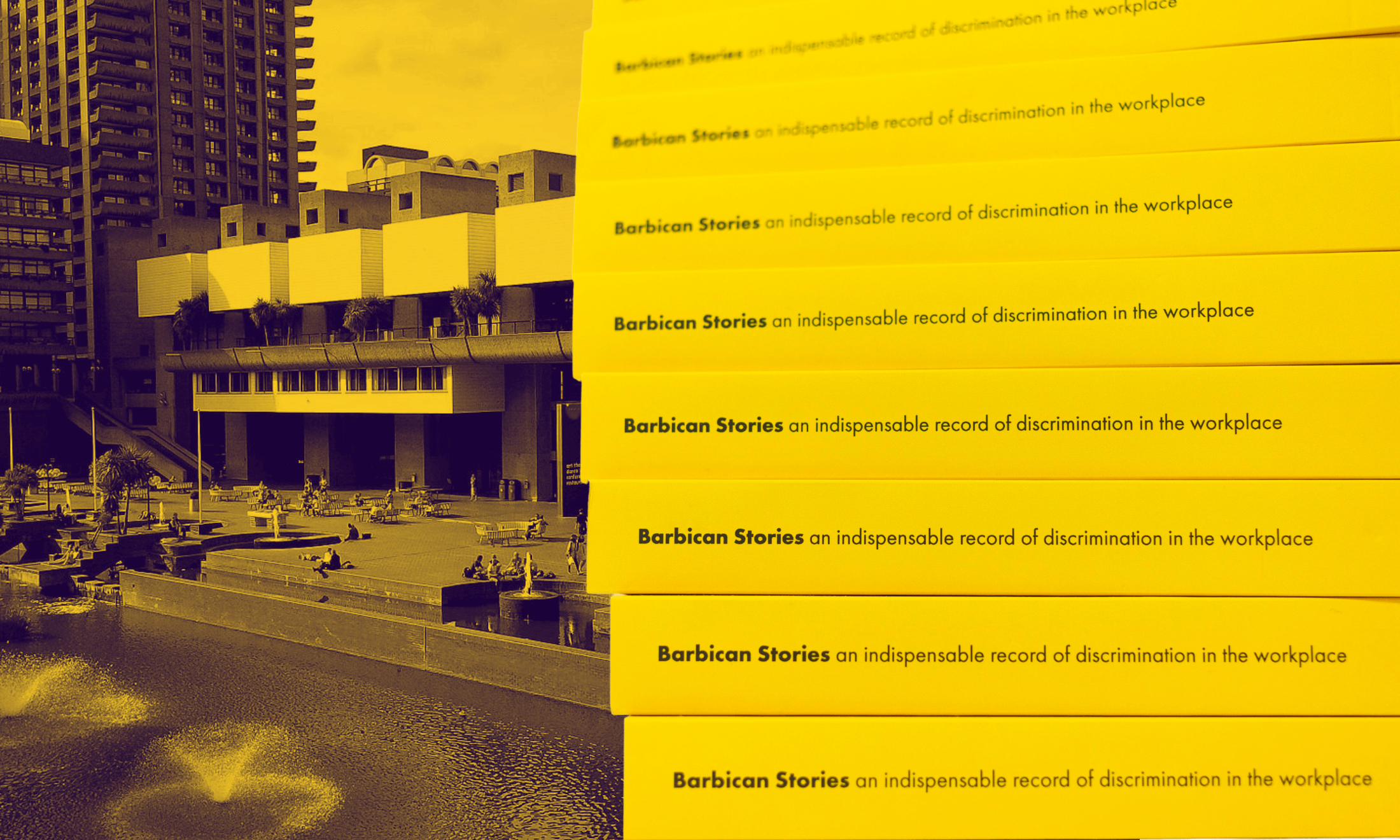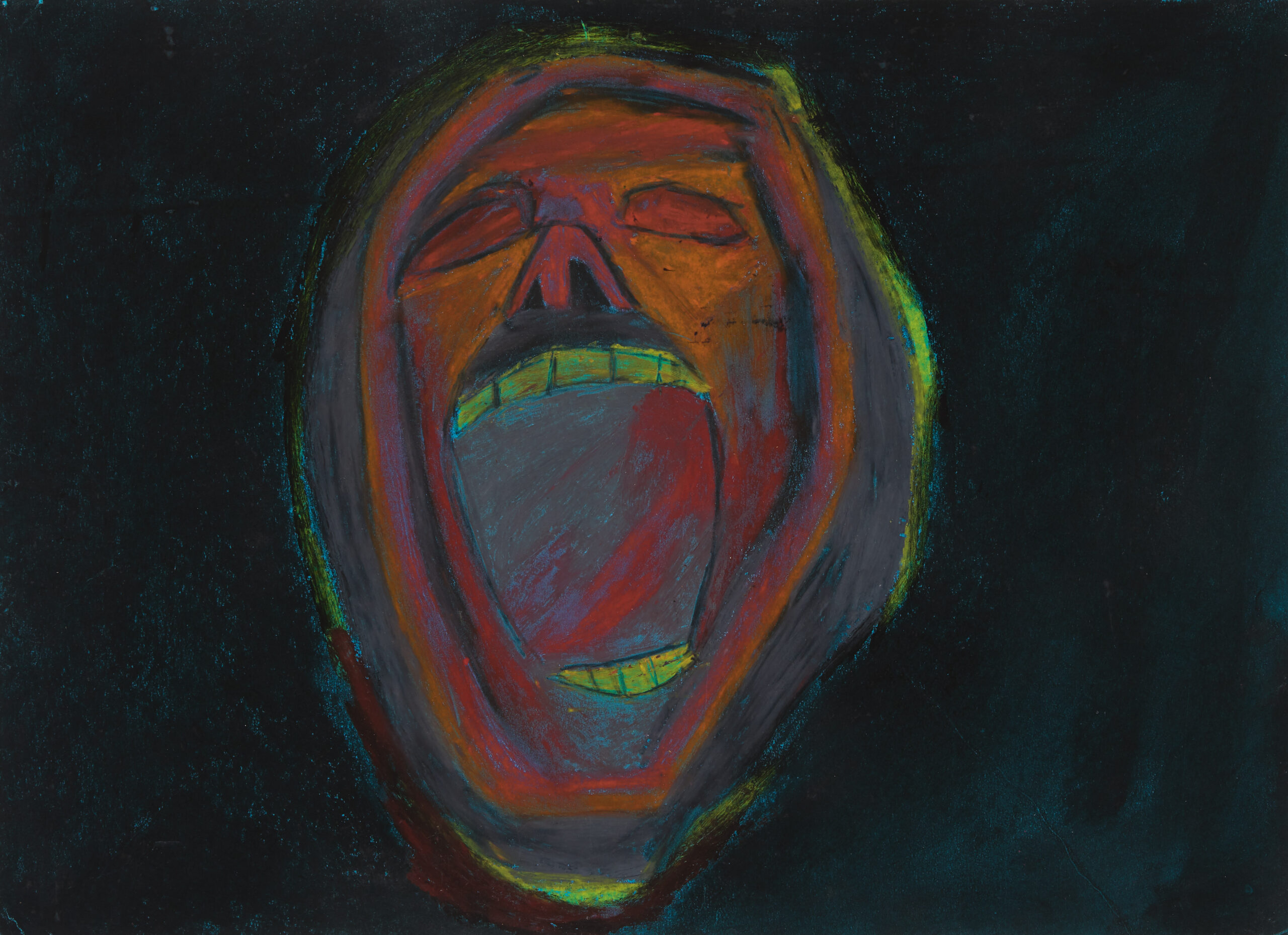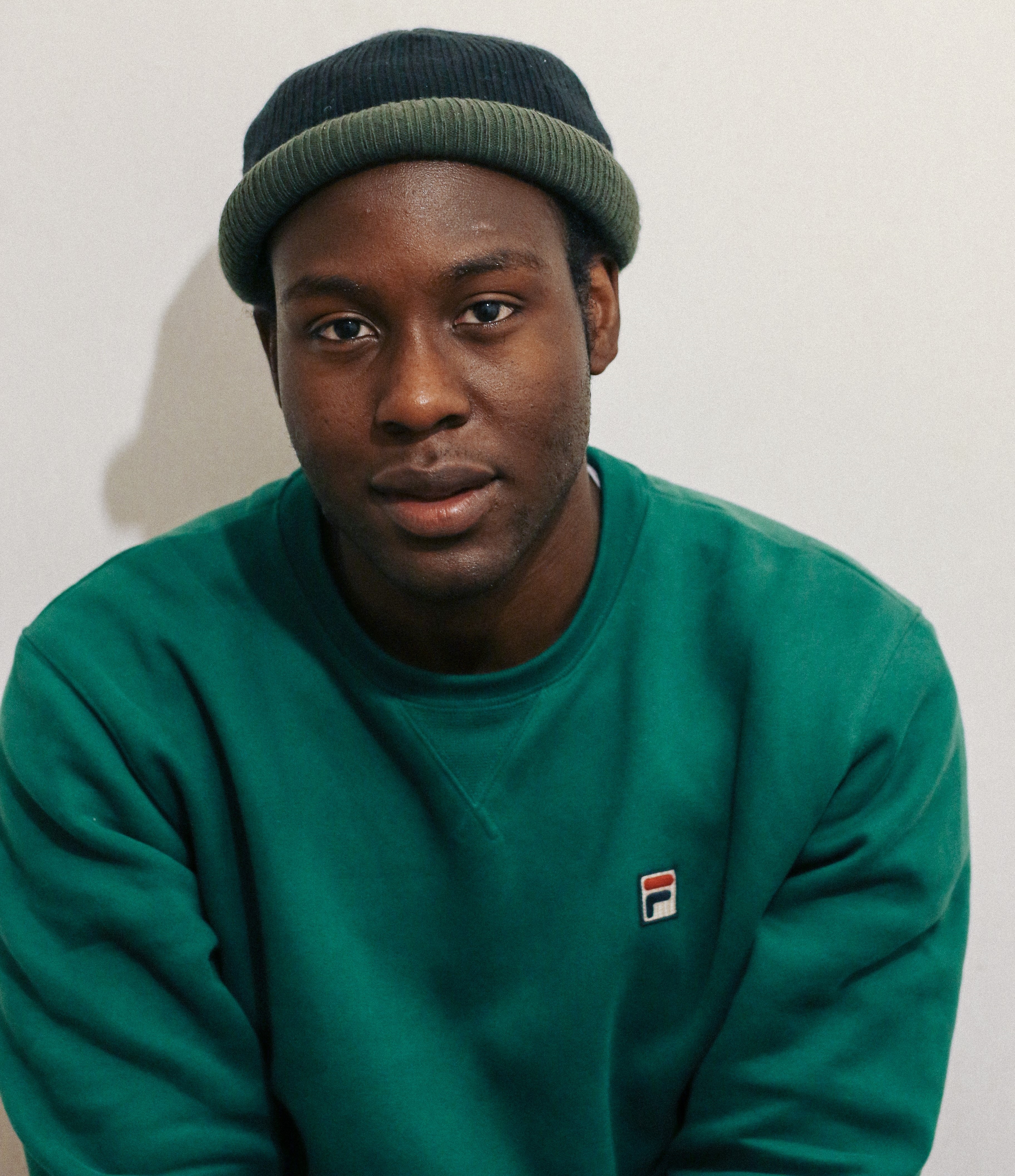
What’s in your mind? Exploring the thoughts of poet and artist Caleb Femi
Georgia Bowen-Evans
01 Jan 2017
I met 26-year-old Caleb in a small coffee shop, ready to start our big conversation. Poet to poet, we discussed masculinity, maintaining authenticity and couldn’t resist writing a two-line piece together: “I like cheese/peas” (watch this space people). In October 2016 he became the first black man to be given the title of Young People’s Laureate for London, awarded by Spread the Word, an organisation that supports young talent in making their mark in London. He is using the honour to encourage young people aged 13-25 to reacquaint themselves with poetry. Prior to this, he also won The Roundhouse Poetry Slam in 2015 and led poetry workshops in North and East London schools.
Caleb’s own introduction to poetry was during his A-levels. “I was reading T.S. Eliot and Robert Frost and they really ignited something in me, that’s when my love for poetry started. At university, I think I wrote in an unconscious way, it wasn’t deliberate.” Now a fully conscious poet, Caleb constantly updates his work, a noticeable example being “Coconut Oil”, which has three online versions. In one of these versions with Sofar Sounds, Caleb scraped the original ending of “Coconut Oil” and rewrote it. He believes it is important to be able to revisit work, stating that, “I don’t believe there is such a thing as a finished poem.”
It is common for artists to reshape their work, it adds dimension and allows growth, and no artist should be stagnant. Caleb tells me, that “for [his] dissertation, [he] studied the work of a philosopher named Friedrich Schiller, who had a theory, that ‘the best type of art mimics the living form’”. Caleb explains that his understanding of this quote is “every art that is considered great is because it is like a living organism; it is able to change and grow in different situations.” He used Emily Dickinson to test this theory in his dissertation, a writer who often had about ten variations of one poem. “She consciously believes in revising poems or leaving them blatantly unfinished.”
Caleb is a contributing member of SXWKS, a cross-arts collective that puts “collaboration on a conscious level” at the centre of its endeavours. Exploring this concept further, I wanted to know what his thoughts were on poets remixing each other’s work. “Well! In poetry, what is plagiarism [and] what isn’t?” he asks me in return. “There is a really famous poem in London that people have written responses to by writing their own version. The original writer had a unique idea, other people have followed suit, taken this idea and just written their own.”
Sounds like stealing? As with other art forms, writing poetry is such a personal journey and not one to be tampered with, so I understand his doubts. Nevertheless, sharing ideas is part of the language of poetry. How poets interact with each other requires some degree of call and response. It is often practised in literary tradition; as Caleb says, “Walt Whitman wrote a poem called I Hear America Singing and Langston Hughes has a responding poem where he says, ‘I too sing America’…I think it’s good that poets are in conversation with each other, using intertextuality to help say something bigger. If another poet was to do that with my work, that’s cool. Personally, I’d rather not know that they had done it.”
Caleb has graced many public stages, notably The Roundhouse Main Stage, The Barbican and the Royal Festival Hall. I have seen him perform myself; trust me – through every poem the air was rippling with poetry clicks! However, I wanted to discuss his “private” poems. As a poet myself, I have pages of writing that I wouldn’t dare share with the world. Some parts of you have to remain out of sight. Hidden away from public scrutiny, he admits, “Yeah, I mean there are some poems I won’t perform or read in public because no one will understand the references. I make so many inside jokes; I like to put jokes in my poems because that allows me to perform it a hundred times. Some poems I just can’t be bothered to explain to people. I might be talking about that day, seven years ago on a Thursday when it rained, you know, something obscure happened and made me feel a certain way, but if you weren’t there you wouldn’t understand. Those poems are just for me.”
Caleb’s work is both fascinating and refreshing, but there are subjects in his poetry that he doesn’t talk about, which he declared to be “everything but love, everything but deep, dark heartbreak. I’ve mentioned relationships in my poems, but always as something supplementary to what I’m trying to say as a whole.” He invites us into the world of his childhood, puts his family “on blast” but is working towards changing this. “I want to interrogate myself,” he says, “so I’ve decided that everything I write for the next month or so should be exploring love and use my poetry as a form of self-healing.”
Aside from his talents as a poet, Caleb also has a passion for filmmaking, having recently shot a documentary called Heartbreak and Grime. He merges poetry, music and visuals in order to identify some of the relationship expectations of men that have been influenced by grime music. In relation to this, we discuss at length his thoughts on masculinity and the perceptions of black men in society. Caleb believes “every man and woman has a different experience with masculinity. For me, I felt masculinity was something that is synonymous with being black, reiterated by teachings of the Bible, culture and peer influences. Growing up these were the versions of masculinity I felt I had to subscribe to, otherwise you get accused of homosexuality or femininity, as if they are opposites.” He began to unlearn these thoughts and behaviours through having conversations where gender rules were being confronted.
At a similar time, social media saw a shift in attitudes towards what masculinity represents – images of men wearing pink, flowers in their beards or being overtly “feminine” were filling up my own Instagram news feed. Without belittling the purpose, I felt the outcome appeared to be for shock factor. These images still use “feminine” objects as an opposite to our perception of masculinity. With this, we still find ourselves questioning what masculinity is, instead of highlighting the possibility that it can represent anything a man wants it to. “I think we can all agree on the positives of breaking down these associations,” says Caleb. “But is this just replacing one perception of a ‘masculine’ man with the other without actually tackling masculinity itself?” Caleb’s questions lead him to begin a photography series, in which he took photographs of black men, insisting that they didn’t pose. “The idea was to challenge the viewer to look for the softness, rather than give it to them on a plate of pink and flowers, just see the humanity in a person without having to be directed to it.”
Next, we landed on his love for working with young people and his approach to the poetry workshops he used to lead. “I used to be an English teacher so it was very easy for me to do workshops because I like working with young people. I mostly worked with secondary schools, from Year 7 to Sixth Form. Working with them comes naturally to me, I liked to be in conversation with them and to talk about poetry and what it’s for.” Understanding the misconceptions that a 15 or 16 year old may have prior to attending the workshops was crucial for Caleb. For many, he explains, “it was the academia which leads them to becoming disenfranchised from poetry.” He emphasises that “people need to understand that poetry isn’t just what we are taught in school. It is a shame that spoken word poetry is detached from academic spaces, as I believe it would provide young people the chance to freely express their understanding and experiences of the world. Analysing poetry from an academic lens is fun, but before the stage of analysis or writing, [my] goal is for poetry to become a genuine interest for young people” as a positive medium that they can connect on a personal level and immerse themselves in.
I had the pleasure of seeing Caleb perform at Cosmic Ashoke, an Afrofuturism event at the Southbank Centre. He hopes his work will have an impact on this movement, though it is clear that Afrofuturism means different things to different people. “It is not easily explainable. All the people I have spoken to have had slight variations in their understanding of what it is.” Afrofuturism is concerned with strengthening solidarity within the black nation. The movement provides a space for every art form to flourish and is no longer just one dimensional. “I still don’t quite understand how this notion of afrofuturism can be congealed into something that is easily definable,” Caleb says.
In true Caleb Femi style, he continues to make his mark on London, reshaping the way we view poetry and opening up unspoken conversations. “I always try to encourage myself and everyone around me to write about things that aren’t visible, conceptual ideas of everyday consciousness that we are yet to even understand or grasp. I’ve spoken to many people about it and they have their own slight variations in their understanding of what it represents. I think that the more that we can write into empty spaces, into spaces that aren’t there, then the more we are writing into a specific future that we want to see.”

